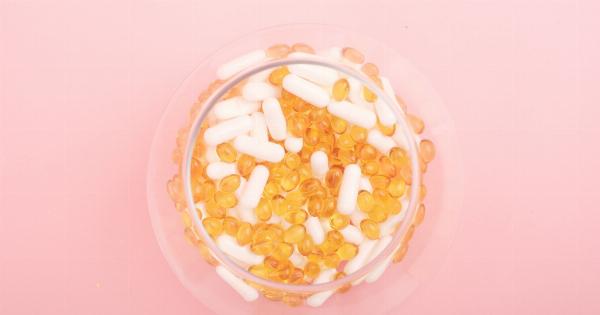Losing hair can be a distressing experience for many people. Whether it’s due to genetics, stress, or certain medical conditions, hair loss can have a negative impact on one’s self-esteem and overall well-being.
While there are various causes for hair loss, one effective way to promote hair health is by ensuring your body gets the necessary vitamins it needs. In this article, we will discuss five essential vitamins that can help save your hair.
Vitamin A
Vitamin A plays a crucial role in maintaining healthy hair. It aids in the production of sebum, an oily substance secreted by the scalp, which moisturizes the hair and keeps it from drying out.
Additionally, vitamin A supports the growth and development of cells and tissues, including hair follicles. Lack of vitamin A can lead to dry and brittle hair, as well as an itchy scalp.
Include foods rich in vitamin A in your diet to ensure ample intake. Some excellent sources of vitamin A include carrots, sweet potatoes, spinach, kale, and liver.
Alternatively, you can take a daily supplement after consulting with your healthcare professional.
Vitamin B7
Also known as biotin, vitamin B7 is essential for maintaining healthy hair, nails, and skin. Biotin helps produce keratin, a protein that forms the structure of hair strands, making them strong and resilient.
This vitamin also promotes hair growth and prevents hair breakage.
Include biotin-rich foods in your diet, such as eggs, nuts, seeds, salmon, and avocados. If your healthcare provider suggests it, you can also take biotin supplements to ensure the recommended daily intake.
Vitamin C
Vitamin C is not just important for boosting the immune system; it also plays a vital role in hair health. This vitamin helps the body produce collagen, a protein that strengthens hair shafts and prevents breakage.
It also aids in iron absorption, which is crucial for healthy hair growth.
Include plenty of vitamin C-rich foods in your diet, such as citrus fruits (oranges, grapefruits, lemons), strawberries, kiwis, bell peppers, and broccoli. You can also take vitamin C supplements as per the recommended dosage.
Vitamin D
Vitamin D deficiency has been linked to hair loss, as this vitamin plays a significant role in hair follicle cycling and regulation.
Studies have shown that low levels of vitamin D can contribute to hair thinning and even alopecia, a condition that leads to permanent hair loss.
Expose yourself safely to sunlight for 10-15 minutes a day to help your body produce vitamin D naturally.
Additionally, include foods rich in vitamin D in your diet, such as fatty fish (salmon, mackerel, sardines), egg yolks, and fortified dairy products. If needed, your healthcare provider may suggest vitamin D supplements.
Vitamin E
Vitamin E acts as an antioxidant, protecting hair follicles from damage caused by free radicals. It also helps improve blood circulation, ensuring that the scalp receives adequate oxygen and nutrients for hair growth.
Additionally, vitamin E helps lock in moisture, preventing dryness and promoting healthier hair.
Include vitamin E-rich foods in your diet, such as almonds, sunflower seeds, spinach, Swiss chard, and avocado. You can also opt for vitamin E supplements if advised by a healthcare professional.
While these vitamins are essential for promoting hair health, it’s important to maintain a balanced diet and lead a healthy lifestyle overall.
Adequate sleep, regular exercise, and managing stress can also contribute significantly to preventing hair loss and maintaining healthy hair.































